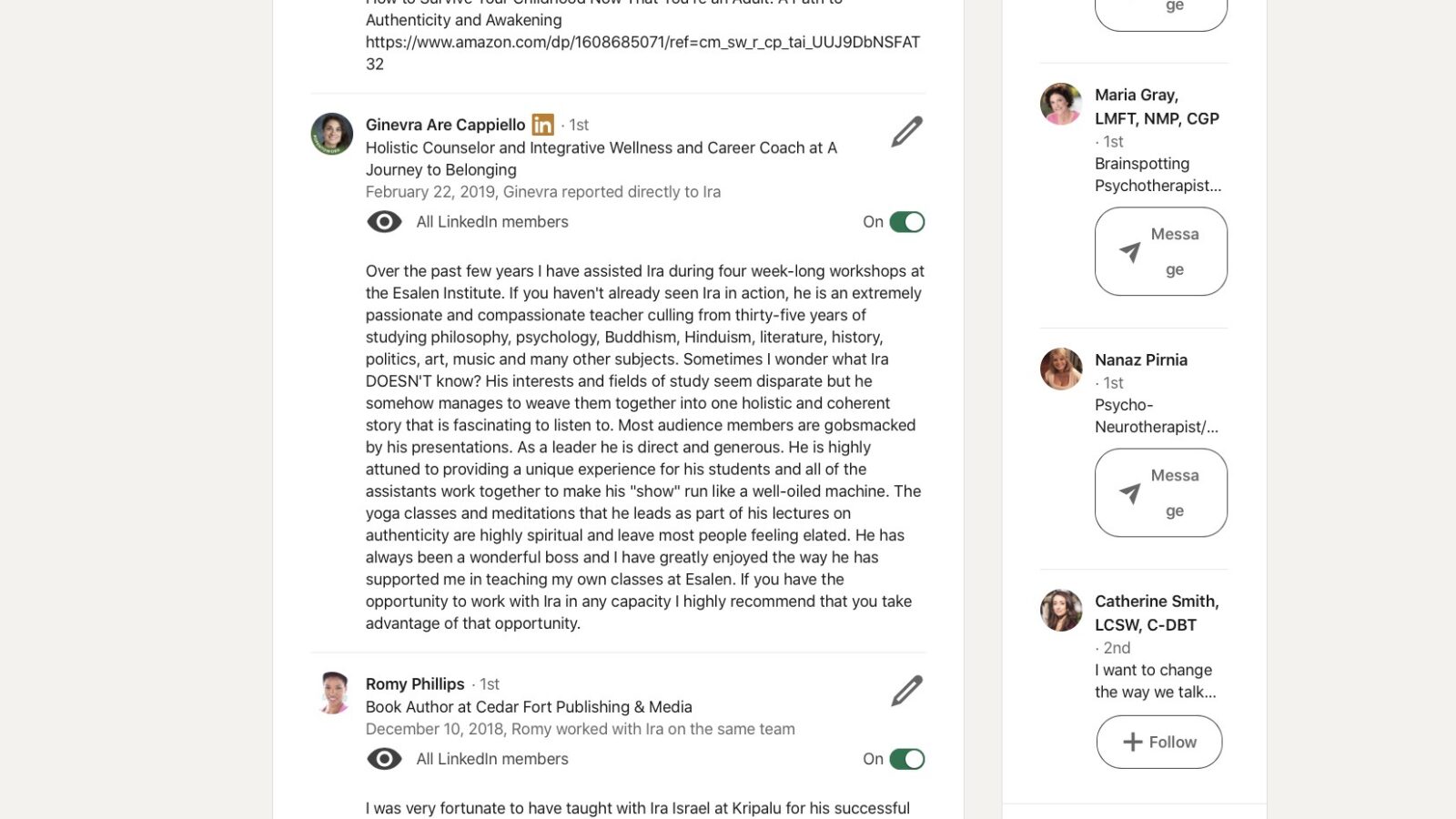“Truth begins with two.” ~ Nietzsche
You are a liar. A charlatan. A total scammer. What you have written about yourself online is at best hyperbolic and at worst a complete fiction that does not correlate with any known reality. These are some of the subconscious assumptions any potential employer or HR person makes upon first viewing your LinkedIn or any professional profile or resume.
So how does an employer learn that you are authentic? Especially when you are the least objective painter of your own portrait.
And, to be frank, there are probably tens of thousands of people who are qualified for whatever job you are applying for.
So what your potential future employer is really trying to determine before calling you is that you are:
- 100% reliable
- Going to get all aspects of the job done
- On time
- Not going to make excuses
- Easy to get along with and pleasant to interact with
- Interesting, well-rounded, “I could learn something about something I don’t know about from this person” they should think
- Not going to rock the boat
- Never going to file a lawsuit
- Going to go the extra mile and not complain
- More than averagely talented
None of the above is ascertainable from your self-reported job history, dates of employment, and listings of your responsibilities, which you may or may not have accurately portrayed on a resume or LinkedIn profile.
The only thing that an employer can really trust is what other people with whom you have worked think of you. Did you have a good attitude? Did you accomplish what you set out to do? Are you a fun person to be around? Did you make your previous boss look good?
And this is why LinkedIn recommendations are so important when you are looking for a job: because they subconsciously instill faith that you are authentic, that the employer is not being scammed, is not going to have buyer’s remorse. These recommendations were voluntarily written by other verifiable human beings and are difficult to game. Whereas one can buy fake Amazon and Google reviews (although Amazon now has “Verified Purchase” stickers for people who really bought the product), LinkedIn — to the best of my knowledge — has not be corrupted, has not been gamed. With a few clicks one can investigate the recommenders and see how and when these people worked together. Yes, there is obviously a list of references on your resume for employers to call, but that is the very last thing an employer is going to do because it is relatively time consuming. Authenticity needs to be established upon first sight.
So whenever people seek career counseling from me, the first question I ask is “How are your LinkedIn recommendations?” Unfortunately, many people do not realize that “truth begins with two (people),” that one person saying something, particularly something about themself, is always dubious, suspect.
Take a gander at some of your peers on LinkedIn and ask yourself if you would consider hiring them and why. Which profiles seem authentic and which seem unduly “spun.” Of course their educational and professional backgrounds are important. But really, amongst all of the applicants for whatever job you are applying for, your potential new boss wants to know that you are going to make their lives easier, potentially more fun, and that hiring you is going to make them look like a genius.
So take some time today to contact your old co-workers and ask them to write LinkedIn recommendations stating that you are reliable, easy to work with, thoughtful, dedicated, always performed all of your tasks with a smile, are a team player, constantly surprised them, extremely talented, and fun to be around.


